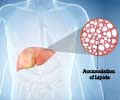A recent study conducted at the Swedish medical university Karolinska Institute has demonstrated that the immune defence's T cells can target and destroy the "bad" LDL cholesterol, leading to atherosclerosis.
By producing a vaccine against the T cell receptors, the researchers have managed to inhibit the development of atherosclerosis in animals. The study is presented online in the distinguished periodical Journal of Experimental Medicine and is expected to be of considerable significance to the future treatment of atherosclerosis, heart attack and stroke.Cholesterol is transported in the blood in LDL particles, which are a kind of fat drops that can accumulate in the walls of blood vessels. LDL activates the immune defence and triggers an inflammation in the blood vessels that leads to atherosclerosis (also known as arteriosclerosis). When the atherosclerotic plaque finally ruptures, a blood clot is formed that in turn can cause a heart attack or stroke.
It was previously thought that the inflammation in the blood vessels arises when the T cells react to oxidised LDL particles located in the atherosclerotic plaque. Now, however, the team at Karolinska Institutet has found that the opposite is true, namely that the T cells react to components in the normal LDL particles, and that they no longer recognise LDL once it has been oxidised.
"Since reactions to LDL can be dangerous, T cells are normally held in check by inhibitory signals," says Professor Gvran K Hansson, who led the study. "The body's own control works well as long as the LDL keeps to the blood, liver and lymph glands. But when it accumulates in the artery wall, this inhibition is no longer enough, the T cells are activated and an inflammation arises."
Together with his research group at Karolinska Institutet he now presents a new principle for inhibiting atherosclerosis. Vaccination against the receptor that the T cells use to recognise LDL can block the immune reaction and reduce the disease by between 60 and 70 per cent.
The vaccine has been successfully tested on animals and the researchers are now hoping to see if it can be developed into a treatment for patients with a high risk of myocardial infarction and stroke.
Advertisement
SAV














